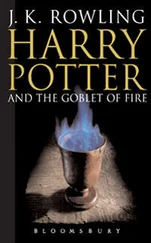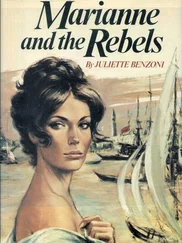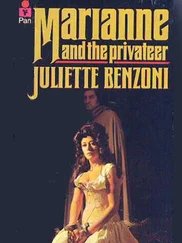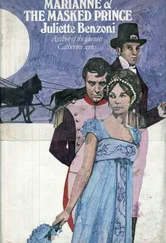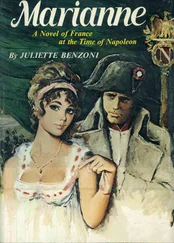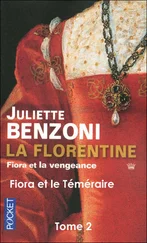'What is he saying?' Marianne asked, stunned by this sudden eloquence.
'I couldn't understand it all by a long way, but I think the gist of it, setting aside a good many appeals to the Little Mother of all the Russias, is that a number of survivors gathered into a few villages. The only thing is, they aren't Zaporogi any more but Black Sea Cossacks.'
The driver, in the meantime, had jumped down from his seat and was pointing with his whip to the church square. He called out something and this time Jolival needed no translation.
'He's right,' he cried. 'Look there!'
The sound of a bell had brought men out from the little gardens, leading horses saddled for a journey. The men were armed to the teeth and wore long tunics of black woollen stuff, caught in at the waist, over baggy trousers of some sort, with tall hats of shaggy fur on their heads. Their weapons consisted of a gun barrel slung over their shoulders, a curved sword, pistol and dagger thrust through their belts and a long lance. Their small, wiry horses carried high, sheepskin-covered saddles.
All the men wore long beards and their appearance was so alarming that Marianne asked uneasily: 'What are they doing? Why are they all coming out together?'
'That's not hard to guess," Jolival said gloomily. 'Remember what was happening at Odessa. The cossacks live quietly in their villages, tilling their fields and minding their flocks, until their Ataman sends out his summons over the steppes. Then they put away their ploughs and get out their weapons and set out for the mustering place. That is what these are doing. We've no need to ask what enemy they are going to fight.'
Marianne shivered. It was the first time since leaving Odessa that she had been reminded so clearly of the conflict taking place so far away on the borders of Lithuania that no news of it had yet come to their ears. Sobered by the sight, she would have liked to retreat at once into the posting house but her companions seemed fascinated by the spectacle.
The cossacks were gathering before the church, in the doorway of which now stood a priest in full canonicals. After the men came the women, clothed, or rather bundled up, in a kind of woollen shift, tied at the waist and worn over a long skirt. They were barefoot and their heads were covered with red or blue scarves. Last of all came the old women and children. The whole population formed up in a half circle in front of the church, as though waiting for something.
At that point the last of the warriors appeared. He was clothed and bearded like his fellows but distinguished from them by the expression of brutal rage that disfigured his flat features and by one thing more. Instead of his horse, he was dragging after him, by her long, tangled black hair, a screaming woman clad only in her shift. Behind these again came an old, grey-haired woman of impassive countenance, carrying a large sack made of heavy canvas.
The woman being so roughly used was young and might have been pretty had her face not been distorted by weeping and screaming. She was doing her utmost to wriggle free from the man's ruthless hand that was dragging her in the dust. When he came in front of the church, the man released the handful of hair in his grasp and sent her sprawling in the centre of the circle of villagers.
There was a murmur of appreciation from the men and a chorus of abuse from the women which the priest silenced with a gesture of his hand. Then the man stepped forward and, in a voice that sounded curiously calm in contrast to his recent behaviour, delivered himself of a short speech which the driver did his best to translate for the benefit of his passengers.
'What is he saying?' Jason asked.
'Well, all I can say is that these people here have some peculiar habits,' Gracchus answered. 'As far as I can gather, the man speaking is the husband of the woman on the ground. She has been unfaithful and he is casting her off before he leaves for the war so that she shall not soil his hearth with the fruit of her misdeeds.'
'He need not cast her off so brutally,' Marianne said indignantly.
'That's not the half of it,' Gracchus went on. 'If there's another man in the village willing to take her, she may live. If not, she'll be tied up in that sack that the old woman, her mother-in-law, is carrying and be thrown into the river.'
'But that's scandalous!' Marianne exclaimed fiercely. 'Why, it's nothing more than criminal! Where is the man who was her lover?'
'It seems he was some vagabond, a wandering fellow of the steppes belonging to the woman's own people. She is a gipsy and she'll not have many friends in this village.'
Certainly a deep silence had fallen. The woman still lay on the ground. She tossed her head to throw back a lock of long hair that trailed across her face. Her anguished black eyes searched the faces that stared back at her body, barely hidden by the torn shift, and at the weals and the darkening bruises showing on the brown skin. The husband had folded his arms and he too was staring about him, as though defying his fellows to take up what he had cast off. At his back a group of women clustered about the mother-in-law who, like some avenging fury, was already busying herself shaking out the sack.
'Surely there must be one,' Marianne breathed, aghast, 'a very young one, perhaps, or else an old man for whom such a girl would be a gift…?'
But there was neither old man nor young boy not yet of an age to bear arms who was willing to buy himself endless trouble for the sake of a guilty woman not of his own people. The woman's doom was clear in every glance. The priest, standing like a glittering statue at the entrance to his church, seemed to understand it, for he traced the sign of the cross in the air a number of times with the cross he carried and began intoning a prayer. The husband uttered a short, harsh laugh and turned away while the women advanced with a horrid eagerness. Another moment and the condemned woman, who was howling now like a wolf in pain, would have been seized and tied into the sack and thrown into the river which, for all its beauty, was to be the instrument of her death.
Then it was that Gracchus leapt forward and without a second's thought rushed at the group, crying out ' Stoi! Stoi ! Stop! Stop!' with the full force of his lungs.
'Good God!' Marianne gasped with horror. 'He'll get himself lynched! Go after him!'
She had no need to ask. Already Jason, Craig and Jolival were running, dragging with them the driver, more dead than alive, and lurching grotesquely in the American's strong grip.
For a moment the situation was fraught with danger. In their fury at seeing their victim snatched from them, the women fell upon Gracchus, shrieking like hyenas over their prey, and the men, at this unexpected intervention, were on the point of joining in when the priest plunged in to the young man's rescue, brandishing his cross.
This had the effect of instantly arresting the cossacks. The women reluctantly released their hold on Gracchus and his friends gathered round him with the air of men determined not to be browbeaten.
With the priest as mediator, the long, laborious argument began. There were shouts and threatening gestures, especially on the part of the wronged husband, who evidently meant to witness the death of the woman who had betrayed him. Marianne, who had not moved from her place by the coach, wondered what she ought to do. If the danger began to look urgent, the best thing might be to drive the kibitka full tilt into the crowd and try to use its weight and the effects of surprise to snatch the four men from certain death. For not one of them had thought of such weapons as there were inside it.
She had climbed into the driver's seat and was already grasping the reins, preparatory to turning the vehicle, when the hubbub subsided suddenly. The women, the old men and the children, began to drift back to the houses. The men returned to their horses. The only people left in the middle of the square were the condemned woman, whom Gracchus had helped to her feet, the priest and the foreigners. The priest raised his cross again to point the way going down to the river. Gracchus took the woman by the hand and, followed by the three others and the coachman, still more dead than alive, came back to the posting house and their coach.
Читать дальше

